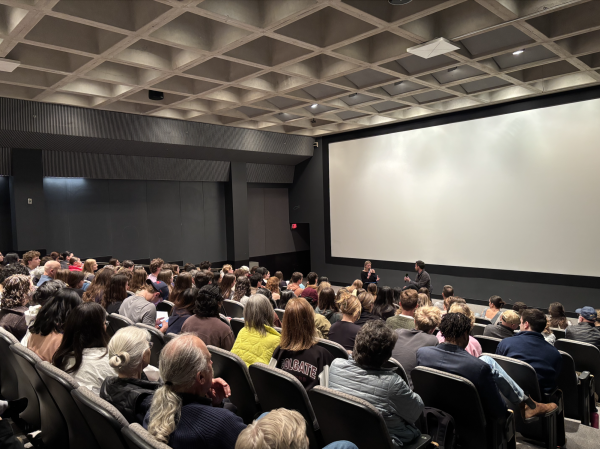Business as Usual, Special Edition: Reading Recommendations
As the semester comes to a close, most members of the Colgate Community find themselves confined to their homes without many opportunities for face-to-face interaction. As a result, it can become increasingly difficult to stay grounded and, for lack of a better word, sane, in such an environment, especially if you live in a place where the winter season brings about seemingly endless amounts of snow, darkness and gloomy days. As someone who resides in Upstate New York, I empathize with those who are faced with said circumstances. Therefore, I would like to dedicate my final article of the fall semester to recommend three books that not only pertain to business and finance, but that also tell a unique story, thus providing a sense of comfort and distraction for the reader, two characteristics that have been in short supply in 2020.
#1: The Quants: How a New Breed of Math Whizzes Conquered Wall Street and Nearly Destroyed It, by Scott Patterson, ISBN: 978-0307453389
In this magnificent work that reads more like a Greek tragedy than a nonfiction historical account, Scott Patterson describes the influx of quantitative traders (“Quants”) to Wall Street and the influence they were able to establish on financial markets. Contrary to conventional backgrounds of financiers, Quants arise from an education predicated on computer science and mathematics, enabling them to take a much more technical approach to markets. As a result, beginning in the 1980s, many hedge funds and asset management firms were founded with the sole purpose of utilizing mathematical models to generate investments. After securing monumental returns in stable times, many Quant funds were crushed during volatile market periods, such as Black Monday (1987) and the Great Financial Crisis, which Patterson tracks in brilliant fashion throughout the book.
#2: Bad Blood: Secrets and Lies in a Silicon Valley Startup, by John Carreyrou, ISBN: 978-0525431992
In Bad Blood, Carreyrou tells the horrific, yet very real story of Theranos, a health technology company that defrauded regulators, investors and the general public on the workability of its products and services. Founded in 2003 by 19-year old Elizabeth Holmes, Theranos touted a revolutionary blood-testing technology that was reportedly able to use a very small fraction of the conventional amount of blood needed to perform tests for health indicators. Such promise resulted in the company raising more than $700 million and reaching a peak valuation of $10 billion by 2013. However, the claims spouted by Theranos turned out to be nothing more than wishful thinking. In reality, the company had no proprietary technology of any kind to justify the astronomical valuation and revenue projections previously pitched to prospective investors. The truth surrounding Theranos began to unravel in 2015 when Carreyrou began publishing articles in The Wall Street Journal pertaining to the company’s misleading practices. Three years later, in September 2018, Theranos ceased operations, rendering all investments in the company worthless. Elizabeth Holmes currently awaits trial for charges related to wire fraud. By tracing on interviews with former employees of Theranos, Carreyrou presents the reader with a tale of fraud and corruption that is, at many times, impossible to fathom.
#3: The Big Short: Inside the Doomsday Machine, by Michael Lewis, ISBN: 978-0393338829
Perhaps the most popular book on this list, The Big Short tells the story of the Great Financial Crisis from the perspective of a few investors who saw the catastrophe brewing from the outside and placed large bets on a coming housing crisis. Going against popular sentiment, the media, and the suggestions of more prominent figures, these few investors, who spanned from very different walks of life, endured endless periods of doubt, anger, and skepticism from their clients, employees, and colleagues. However, when all was said and done, those few investors were proved right and profited immensely from their trade. In this excellent read that was eventually developed into a feature film in 2015, Michael Lewis conveys the story of each investor who put everything on the line in the pursuit of an unpopular point-of-view that they were certain was correct.
Marcus Tullius Cicero, a man who played a vital role in the preservation of the Roman Empire, once said, “A room without books is like a body without a soul.” As an avid reader myself, I wholeheartedly agree with Cicero’s assertion of the importance of reading. Throughout human history, reading has remained a constant medium of knowledge, inspiration and storytelling. Without it, the quest for those three attributes would be much more difficult than it already is. Therefore, it is my dear hope that these few book recommendations are able to provide you with the same sense of satisfaction that they did for me.
Richard Falvo is a junior from New Hartford, NY pursuing a double concentrating in economics and philosophy. After joining The Maroon-News in Fall 2019,...








